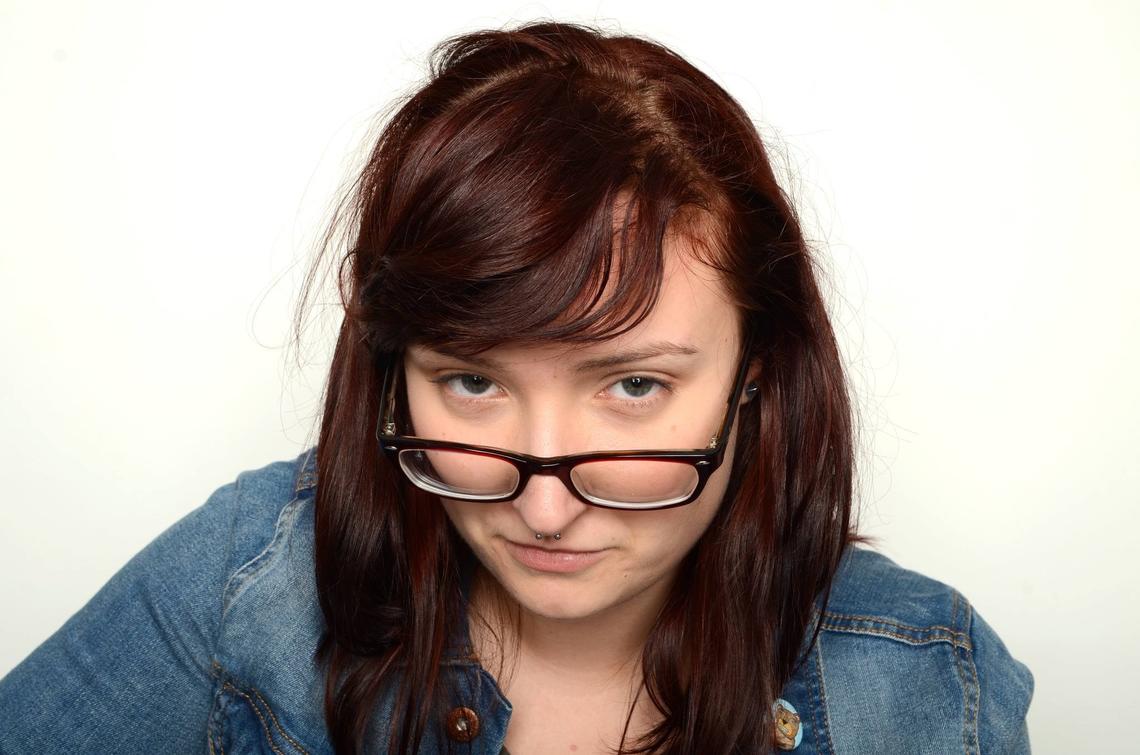Rachel Braeuer
What is your degree, and program?
I graduated with an MA in English — course based. I started in the thesis stream, but it’s all the same department. I was in the program for four years.
Describe your research/area of study.
My research focused on sound as a way of reading queer performance and ephemera. I considered what it means to include queer sound in a historical archive, how a focus on the visual aspects of queer culture and performance has shaped the queer musical record, and how queer and trans artists and performers are using sound and their bodies in unique ways to make marginalized identities both seen and heard in new ways.
What do you plan to do with your research/studies? How will your work impact your field/community/city/country?
I’m hoping to piece out and publish parts of my project. I hope I can contribute to and shift a conversation that has been so focused on how people look and the perception of queer bodies as objects. I hope I’m contributing to moving our conception of queerness outside of a reductive pride narrative that privileges assimilation and instead considers queerness as radical. I would love to find more avenues to talk about my research with the general public. I think doing this kind of work about marginalized communities without sharing that knowledge is criminal. Our subjects need to benefit from our research in direct ways.

Image courtesy of Rachel Braeuer
Have you always wanted to go to grad school?
I decided to go to grad school after taking a course at SFU with Dr. Peter Dickinson focused on women in comedy. The course culminated in an interdisciplinary conference and I was totally hooked on the idea of grad school after getting to take part in conversations with academics in that setting. That class shifted how I thought about English as a discipline: we studied Margaret Cho stand up alongside Chaucer’s “Wife of Bath” and some of Anne Coulter’s published work.
Where would you like to be in ten years?
Somewhere I never could have imagined being ten years in the past.
How would your friends describe you?
Funny, kind, giving, thoughtful, salty.
What does success look like for you?
That really depends on context, but I think being able to go to sleep at night feeling good about myself and what I accomplished that day is a good sign I’m on the right track no matter what I’m working on.
Describe a time in grad school when you tried something new and succeeded. What impact did the success have for you?
I helped take on planning a panel of speakers for the annual English graduate conference “Free Exchange” in my second year. It cemented the importance of including community members in academic work and settings and making my work accessible to the people I’m writing about.
What were your thoughts and/or feelings as you submitted your thesis to the Faculty of Graduate Studies?
I didn't write a thesis, but when I submitted my capstone via e-mail I thought “all that stress for this...” but I felt a genuine sense of pride over what I had accomplished and for what I had written. It’s far from perfect but I’m very fond of it.
Before starting your grad program, did you have any incorrect perceptions about grad school (i.e. the people, the types of challenges, level of difficulty, etc.)? What did you discover after starting your program?
I thought it would be a lot more work than it was in terms of my time, but I underestimated how brutal a challenge it would be mentally.
What is the most challenging part of being a grad student and how did you manage those challenges?
The hardest thing for me was not feeling like I had a balance between my work and personal life. Being tied to a semester schedule means you miss out on anything that happens during midterms or finals and then between semesters get to have this total freedom, but only for a short window. It’s a weird lather, rinse repeat. I don’t know that I always managed those well. If I could go back I would try to include a lot more regular structure into my schedule.
If you could go back and speak to yourself in your first year of grad school, knowing what you know now, what advice would you give yourself?
Go easy on yourself. You’re much more capable than you think.
